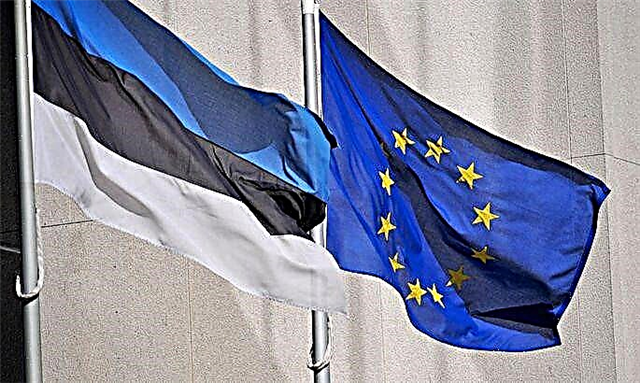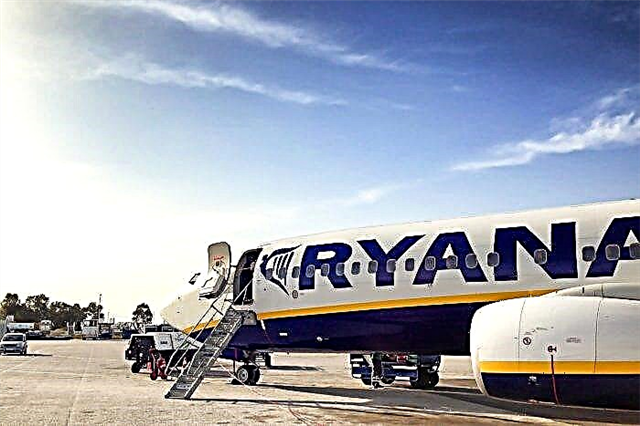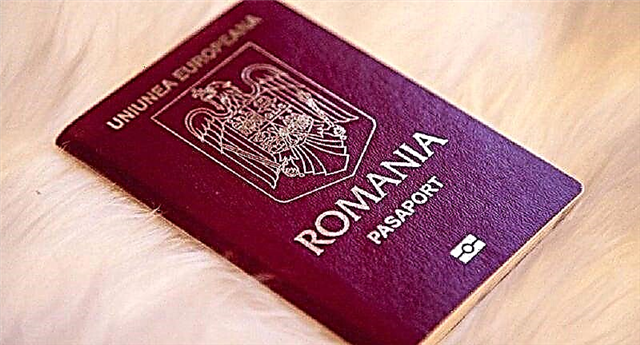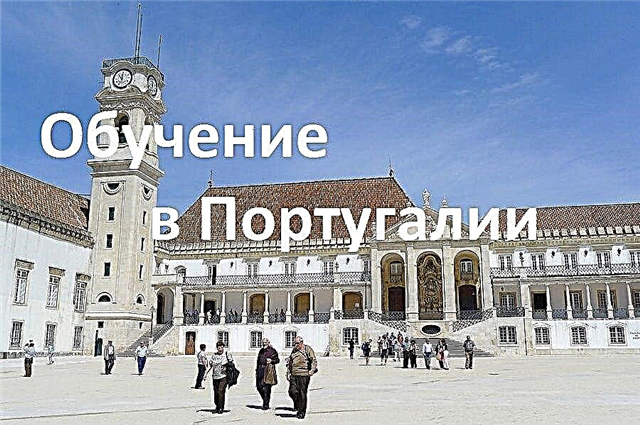Portugal's higher education system is ranked 23rd in the world in terms of quality. The number of foreign students is at least 10% from the entire mass of students in universities.
Higher education
An applicant at the age of:
- 16 years - under the program of preparation for admission to universities;
- At least 17 years old - for a bachelor's degree;
- At least 20 years - to study for a master's degree or obtain an MBA degree;
- From the age of 23 - if the award of a doctor's degree is required.

The duration of training is:
- Bachelor's degree - 3 years;
- Master's degree - 2 years;
- MBA - 1 year;
- Doctorate - 3-5 years.
It is especially worth noting the assessment system adopted in the republic:
- The maximum score is 20 points;
- Grades below 10 points are considered unsatisfactory;
- "Average" - 10-13;
- "Good" - 14-15;
- «4+» – 16-17.
To enter doctoral studies, the GPA of the diploma must be 16 or more.
During the training period, you will need to take:
- Offsets;
- Tests;
- Laboratory research;
- Projects.
Depending on the direction of the university, the timing of the main sessions - winter and summer - is different. Most often, winter trials last from late December to late January, and summer trials from early June to late July.
The result of training for a future master is a written work on the topic corresponding to the specialization. Its size should be 50-90 pages. After writing, a public defense is held, which is attended by teachers and anyone interested.
You May Also Like

Defending a doctoral degree is more challenging. When considering it, 5-6 teachers (or experts with a scientific degree) will participate, and the examiners are invited from other universities. The applicant must have publications in scientific journals, and the topic of the dissertation must be relevant and new in the direction in which the applicant is studying.
By the way, it is normal for republican universities to employ their own students as junior assistants. But a bachelor's graduate who wants to take a vacant position must have an average grade of at least 16 (according to the diploma). And this makes it possible to combine further training and work, for which the assistant will receive at least 18,000 euros per year. The lowest established income in Portugal is about 6,500 euros per year.
It should be said that it is difficult for graduates of republican universities to find vacancies at home: the unemployment rate is quite high. However, specialists in the field of construction, IT, medicine have good chances of finding a job in Portugal. The fewest vacancies here are related to the humanities.
Job search will directly depend on:
- Availability of recommendations of scientific advisers;
- Facts of participation in various international scientific projects;
- Publications in scientific journals.
It will be easier for Russian-speaking graduates to get a job in Russian tourism firms, joint scientific work with Portugal, as well as in trade intermediary organizations, since the number of people fluent in Portuguese in Russia is just over 10 thousand.
Education programs
There are three types of higher educational institutions of the republic:
- General Universities in Portugal;
- Polytechnic institutes;
- Business Schools (MBA).
Institutions can be public or private. Historically, private universities are not considered prestigious for applicants: they are inferior to state institutions in terms of technical equipment and the class of teaching staff.
Polytechnic institutes differ from classical universities in that they train specialists in such types of activities as:
- Accounting;
- The medicine;
- Preschool education;
- Engineering (industry, manufacturing).
You May Also Like
Portuguese business schools are attractive for the modern level of training of students, which allowed them to enter the first hundred of the best institutions of this kind in the world.
Their main specialization is the training of professionals in the following areas:
- Management;
- Marketing;
- Advertising and PR;
- Adjacent areas.
Important: Some Portuguese universities have the privilege of setting their own curriculum, financial and business rules. Therefore, before admission, it is recommended to familiarize yourself with the charter of the university in order to avoid possible misunderstandings.
Training programs are divided into levels:
- Undergraduate... Training lasts 3-4 years at polytechnic institutes, up to 5 years at universities. According to the European grading system, it is required to gain 180 ECTS at the institute, 180-240 - at the university. Basic subjects and special disciplines related to the chosen direction are studied, and about 1 year before graduation, the student must choose whether he will study further or go to work;
- Master's degree... With a two-year study, it is assumed that an in-depth study of subjects, the student's participation in scientific and research activities, and upon completion - public defense of the diploma project;
- Doctorate... This is one of the highest levels, after several years of study, it is possible to defend a doctoral dissertation and receive the title of doctor in the studied specialization or science. In reality, the period of study in doctoral studies is not limited, the average age of people who have defended their work is 35-36 years.
The programs are designed to work according to the Bologna system widespread in Europe. There is some peculiarity of training at polytechnic institutes: graduates are awarded a bachelor's degree, but further training is not expected, since it is generally believed that practical engineers do not need this.

Conditions for admission
Entrance tests to universities in the republic are usually held in the form of tests and interviews, but sometimes a diploma competition based on the average score can be held. Knowledge of the Portuguese language is also assessed during the interview. Without his possession, the applicant will not be admitted to training.
However, some universities can accept foreigners even with basic knowledge of the language, but with the obligation to further attend linguistic courses in parallel with the general training program.
Applications for admission are accepted from July 16 to August 10.
List of required documents. Study visa
It should be noted the high degree of indiscipline in which the local residents are distinguished. This also applies to employees of government agencies. Therefore, in order to avoid possible problems, you should submit the necessary documents in advance, taking into account possible delays in their consideration and execution.
Applying for training is reduced to applying to the chosen university. In addition, you will need a certificate of secondary education, translated into Portuguese and legalized accordingly: according to it, the members of the admissions committee will calculate the average score.
The legalization of the certificate - an apostille - is the certification of the authenticity of the document and all the seals on it. In Russia, this is done in the departments of the Ministry of Education, the procedure takes up to 45 days, the cost (state duty) is 1,500 rubles.
Of the main documents you will also need:
- Applicant's questionnaire;
- International passport;
- Visa;
- Insurance policy.
Different universities may require additional documents, for example:
- Certificate of solvency;
- Language Proficiency Certificate TOEFL / IELTS (English / Portuguese);
- Recommendations from the place of study;
- Sometimes it is allowed to pass a language interview via Skype.
The cost of processing an application for admission - from 20 to 200 euros.
If a positive decision is made, the applicant will receive the appropriate document, which is needed to apply for a student visa.
Also for a visa you will need:
- International passport;

- A translated and certified document from the bank on the availability of funds;
- Certificate of no criminal record;

- Air tickets and information about the proposed accommodation (hotel reservation, copy of the apartment rental agreement);
- Medical certificate.

The list of documents is subject to change, so it should be checked in advance with the consul or at the university.
Cost of education
Higher education in the republic is more accessible in comparison with many other EU countries. The cost of services in private institutions is much higher than in public ones.
Preparation for admission to a university involves a one-year program cost 4500 euros per year.
The main stages of study (euros per year):
- Undergraduate - 700-6500;
- Master - 1500-8000;
- Doctorate - 3000-9000;
- MBA - 12000-36000.
One of the most affordable universities is the University of Coimbra, where the tuition fee for the academic year will be 700 euros.
Is it possible to get education for free
Free higher education in Portugal is not provided. All students, even those studying in budgetary departments, pay the minimum annual fees.
The only way to cover the costs is to have a part-time job in the afternoon, since most of the classes are no longer held during this time. Officially, students can work no more than 20 hours a week, and this time is not limited only during the holidays.
Scholarships and grants for foreigners
The payments are set by the universities themselves, but local students enjoy privileges in the distribution of money.
Science and Technology Support Fund Portugal allocates funds for foreign students, but only for graduate and doctoral departments. Or short-term grants for specific works.
The Camões Institute supports those who study the language, history and culture of Portugal. There are also short summer courses and scholarships for masters and doctors. There is also a program for translators.
Erasmus Mundus Scholarship issued to refugees and persons who have applied for political asylum or who have found themselves in difficult situations (for example, expelled from other universities for ethnic reasons).

Features for internship and study exchange programs
To use the exchange program, you will have to contact the university of interest and try to find out from the administration which programs are currently relevant.
For study and internship, it is desirable to meet the requirements:
- Good knowledge of the Portuguese language;
- Academic performance in your university should be above average;
- Lack of diseases that can affect studies.
If the university is interested, the administration may ask to perform any creative work (for example, an essay) that will be related to the culture or history of Portugal.
Based on the results of the competition, a decision can be made whether the university is ready to accept a student, on what conditions this will happen.
Accommodation and meals for students
Living in a separate apartment will cost 300 euros per month (depends on the area), this applies to Lisbon. In other cities it is much cheaper. In dorm - 150-250 euros.
Food will take away 5-7 euros per day... Internet connection - 25 euros per month.
Top universities in the country
University of Porto (Universidade do Porto). One of the most prestigious universities in the republic, it has existed since 1911. More than 2,000 professors work in the educational institution, at least 30,000 students.
The university system includes:
- 14 faculties;
- Business School;
- 16 libraries;
- 14 museums;
- 6 laboratories;
- 50 departments dealing with scientific and research activities.
Cooperation with other universities outside Portugal is actively developed. Official page - up.pt.

University of Lisbon (Universidade NOVA de Lisboa). Located in the center of the capital, it has existed since the end of the 13th century. A little less than 20 thousand students study here, about 1500 teachers work with them.
University structure:
- 5 faculties;
- 3 institutes;
- One school;
- 41 SIC (research center);
- 3 laboratories;
- Various sports complexes, libraries and museums.
The official site is unl.pt.

University of Coimbra (Universidade de Coimbra). One of the oldest universities in the world, it has existed since 1290. More than 20 thousand students (with 3-3.5 thousand - foreigners), over 1600 teachers.
The structure of the university includes:
- 3 campuses;
- 8 faculties;
- 4 SIC;
- 18 libraries;
- 2 museums;
- 2 sports complexes;
- Botanical Garden.
The official website is uc.pt.
Reviews about studies
Anna: When I came to study in Lisbon, I knew Portuguese rather poorly, but still I was admitted to the university. Portuguese students helped me quickly get used to it and in general I was amazed at their friendliness. Teachers give lectures in a very interesting way, after 5-6 months of training, I understand almost everything. Student life is full of activities: there are many additional courses and seminars.
Sergei: Now I have passed the next session at the University of Porto, it was not difficult, the professors are loyal to the students. I really like the local climate and communication with students from different countries. I also found a part-time job: I will be doing translations from Portuguese into English, as I have mastered both languages very well in 2 years.
Studying in Portugal is interesting because entering a university (even with a basic knowledge of the language) is not difficult, and the visa obtained will allow you to freely travel throughout Europe, engage in self-education in your free time and find a suitable job.











